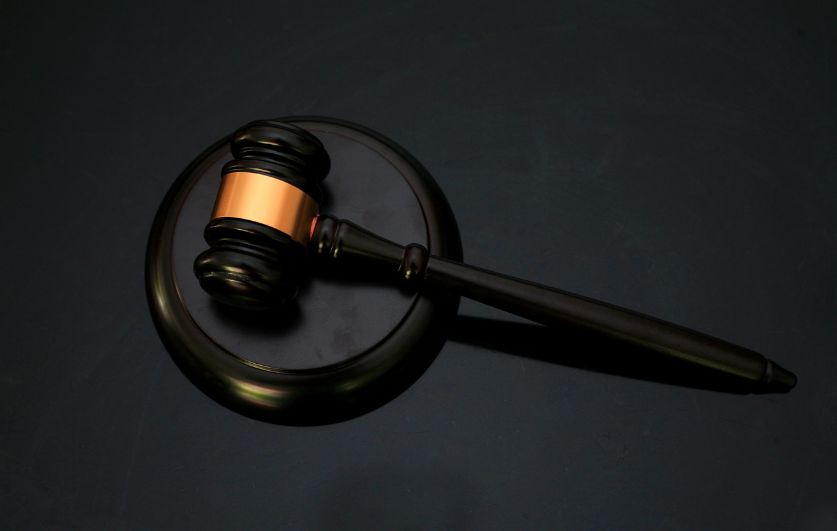
|
Getting your Trinity Audio player ready...
|
By Alric Lindsay
The prosecution gave its closing speech to the jury on November 29, 2024, in the case of police sergeant Keren Watson, who is accused of misconduct in a public office. According to the prosecution, Watson allegedly abused her position as a police sergeant by accessing the police record management system to obtain Tamika Young’s data for non-policing purposes. These non-policing purposes, according to the prosecution, were to obtain “damaging, sensitive information” on Young, who was said to be romantically involved with a man Sergeant Watson was seeing. The defence counsel disagreed, highlighting that several police officers had access to the police records management system (not only Sergeant Watson), proper checks were not done to determine Watson’s reasons for accessing the records management system, and ultimately, it could not be proven that Watson’s access was for a non-policing purpose. Without direct evidence, the defence’s view was that the case against Watson was largely circumstantial.
Prosecution’s closing arguments
Before the prosecution gave its closing arguments on Friday, it was explained to the Grand Court that the love triangle was discovered in October 2018 when Young found a receipt in her lover’s apartment with Watson’s name on it.
Reportedly, Young approached Watson to ask her about the receipt and to discover whether there was a relationship between Watson and Young’s lover.
It was alleged that Watson became jealous of Young’s relationship with the man they shared. A “continuum of jealousy” reportedly existed from October 2018 to April 2020.
The prosecution indicated to the jury that when Watson initially accessed Young’s records from July to December 2019, Watson “knew she was guilty” and did so for personal reasons.
The prosecution added that Watson was “driven by jealousy” and “willfully ignored the rules because of her jealous state.”
According to the prosecution, “this jealousy blinded her to her public duties” and “caused her to access the Young RMS reports for her personal, private, vindictive reasons.”
The prosecution suggested that instead of Watson admitting her breach of the rules, Watson “decided to make a play” by diverting attention from her alleged unauthorized records access. To do this, Watson allegedly created a “smokescreen” so that the focus would not be on her.
In the circumstances, the prosecution told the jury that, instead of allowing Watson’s alleged smokescreens to throw the jury off the scent of Watson’s alleged misconduct, the jury should remain focused on the fact that all they needed to be satisfied with in this case was that Watson accessed Young’s records for a non-policing purpose. Concerning this, the jury was asked to rely on largely circumstantial evidence rather than direct evidence. Without direct evidence, the prosecution guided the jury to use the circumstantial evidence “to build a picture that looks like misconduct.”
Defence’s closing arguments
Defence counsel painted a different picture of what occurred.
The defence explained that Young was married when she was involved in a love triangle with Watson and another man. In fact, Young had been cheating on her own husband while in the love triangle.
According to the defence, Young approached Watson in October 2018 about the receipt she found because Young was jealous of Watson as a rival lover.
The defence asked the jury if it were the case that Watson was jealous from October 2018, then why didn’t Watson begin to access the police records management system from then on to learn more about Young? In addition, Watson didn’t access Young’s data on the police records management system for the first six months of 2019. The defence suggested that these facts dent the prosecution’s theory that a “continuum of jealousy” existed from 2018.
The defence explained further that there was a “failure to conduct a proper investigation” into the reasons for Watson’s access to the records management system. For example, no one checked if Watson was training someone on the records management system, no one asked if Watson was asked to search for a specific records management system number, no one spoke to the members of Watson’s team when she was working at the relevant time, and no one checked with Watson’s senior officers.
The defence suggested that since the investigators did not check these matters, they didn’t “follow proper and reasonable lines of inquiry.” Instead, the prosecution collected witness statements to support its position that Watson accessed the records management system for an unauthorized purpose.
The defence concluded that this was not a case of a “smoke screen” being put up by Watson to redirect focus from her but a case of “shoddy” investigation and failure of investigators to do proper checks.
Judge’s directions
After the prosecution and defence gave their closing arguments, Justice Richards gave directions to the jury, noting that she was the judge of the law while the jury was the judge of the facts.
Justice Richards then explained the significance of inferences.
She said:
Inferences are common sense conclusions based upon the evidence.
You are entitled and should draw inferences if you think that is a reasonable, proper and common sense.
She added:
There is a difference between a reasonable inference and speculation.
Speculation in a case amounts to no more than guessing, making up theories without good evidence to support them.
She warned the jury not to indulge in speculation and to draw a firm distinction between a reasonable inference on the one hand and speculation on the other hand.
Justice Richards is expected to complete her summing up and directions to the jury on December 2, 2024, after which the jury will take time to deliver a verdict of guilty or not guilty.





